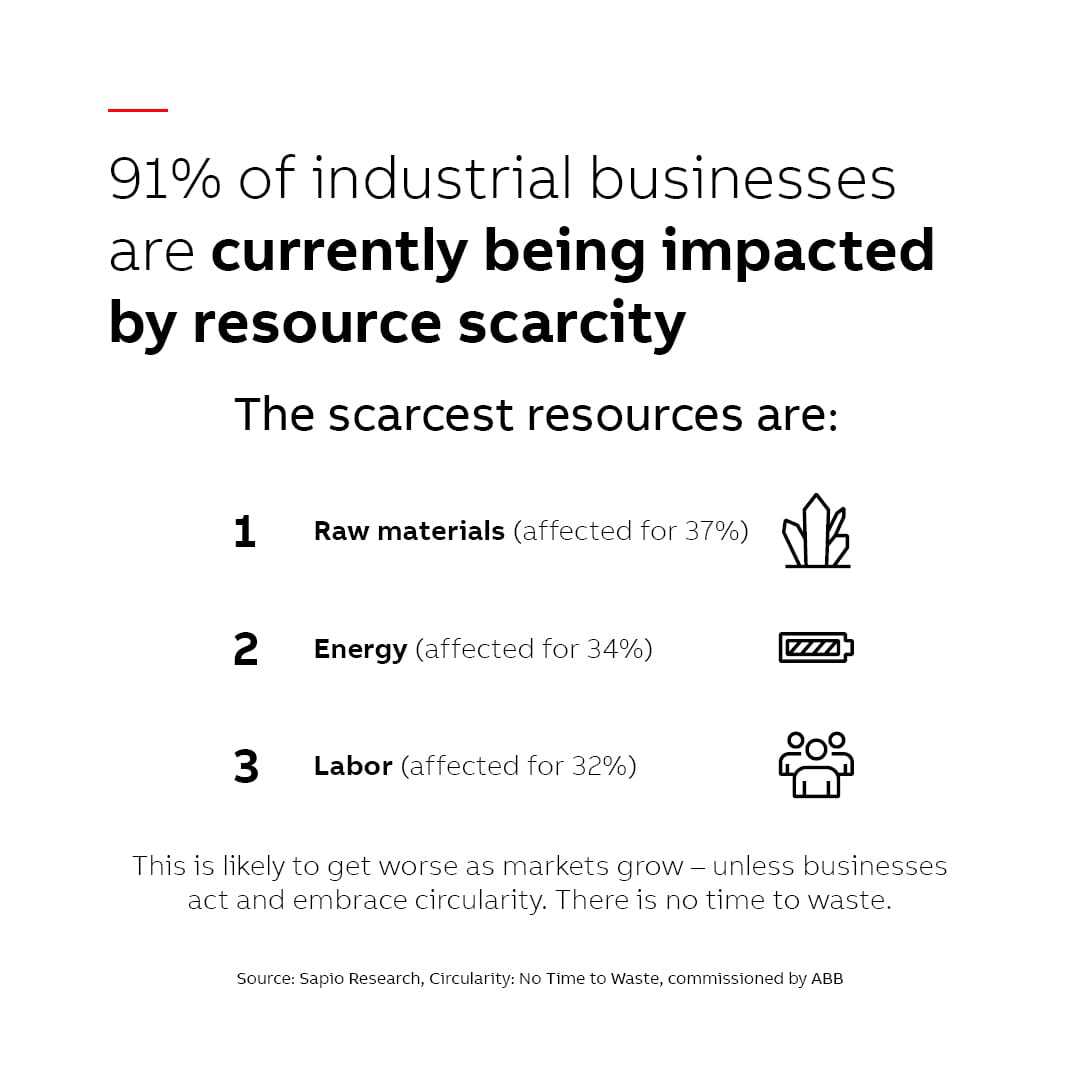Resource scarcity affects 91% of industrial firms, underscoring imperative for circularity – Dailynewsegypt


A recent study by ABB Motion, titled “Circularity: No Time to Waste,” indicates that a staggering 91% of industrial companies are grappling with resource shortages. This has spurred nearly two-thirds of them to ramp up their investments in circular economy initiatives over the coming three years.
The most acutely felt shortages are in raw materials (37%), closely followed by energy (34%), labor (32%), and electronic components (26%). These shortages have not only escalated costs for 37% of companies but have also led to supply chain disruptions for 27% and curtailed production capabilities for 25%. Interestingly, although energy is deemed one of the scarcest resources, it is also reported as the largest waste contributor by two-fifths of the businesses. This paradox underscores the critical need for enhanced energy efficiency in the industrial sector, a factor the International Energy Agency (IEA) deems vital for achieving Net Zero objectives.
Conducted by Sapio Research in October 2023, this worldwide survey polled 3,304 industrial leaders from 12 nations, including the US, China, India, the UK, Sweden, Germany, and France. The participants spanned various sectors, such as energy, metals, chemicals, oil and gas, marine, mining, and utilities.
Despite the general optimism surrounding circular economy investments, the survey pinpointed several barriers to immediate advancement. A notable issue is the lack of consensus on a universal definition of “circularity,” with only 8% of respondents viewing it as an organization-wide mandate. However, those who did adopt this perspective reported the most significant gains in key circularity metrics, including energy usage, recycling rates, and carbon footprint reductions.
The findings also highlight that several pivotal circular practices are yet to gain widespread adoption, with only a minority of firms engaging in partnerships with waste management entities (41%), integrating energy-saving technologies (37%), and endorsing circular principles within their supply chains (32%). On a positive note, 67% of companies are incorporating recycled materials into their products to some degree.
The shift towards circularity has yielded tangible benefits, most notably in waste minimization (46%) and the enhancement of energy efficiency (45%). While concerns about initial investments persist, many firms foresee long-term gains in operational efficiency and cost management.
A robust 78% of those surveyed concur that a circular economy fosters innovation and enhances competitive edge. They also advocate for more stringent regulations and reporting standards (74%) and call for greater governmental support in adopting circular business models (77%).
Tarak Mehta, President of ABB Motion, stated: “The urgency of transitioning to a circular economy is more apparent than ever. Our prevailing consumption patterns are rapidly depleting resources, exacerbating emissions, and intensifying climate change. Adopting circularity is crucial not just for environmental protection but also for bolstering business resilience.”
He further emphasized: “This survey underscores the need for a comprehensive strategy, instilling a sense of accountability at every organizational tier, and leveraging novel technologies and partnerships. Despite the hurdles, companies that wholeheartedly commit to circularity reap substantial rewards, from cost savings to reputational enhancement. The time for action is now; we must make circularity a standard practice across global industries without delay.”






